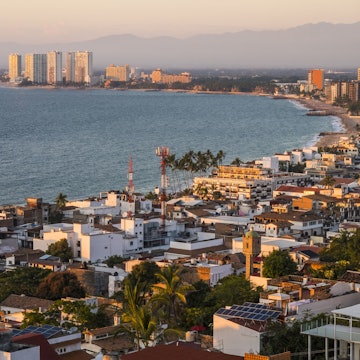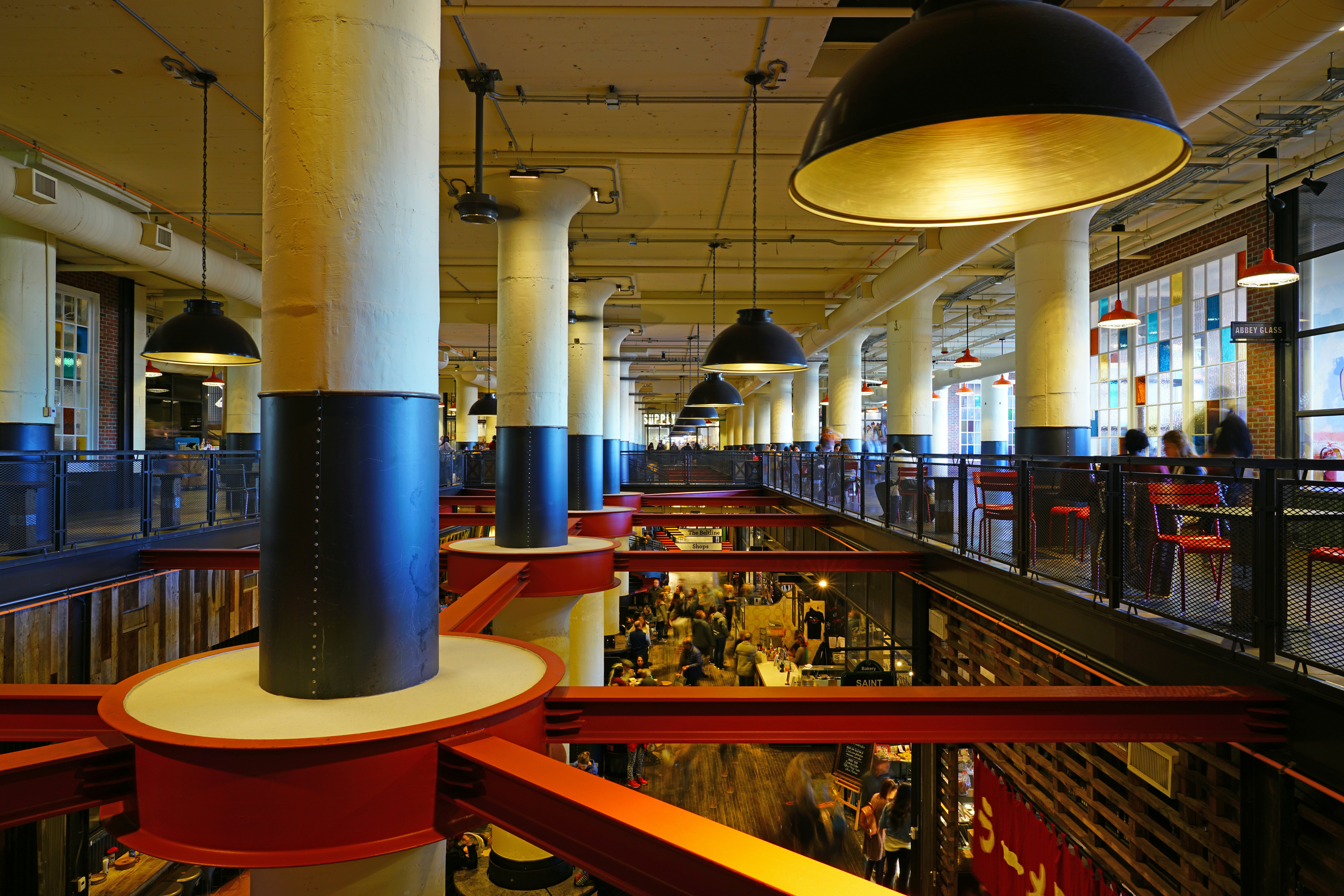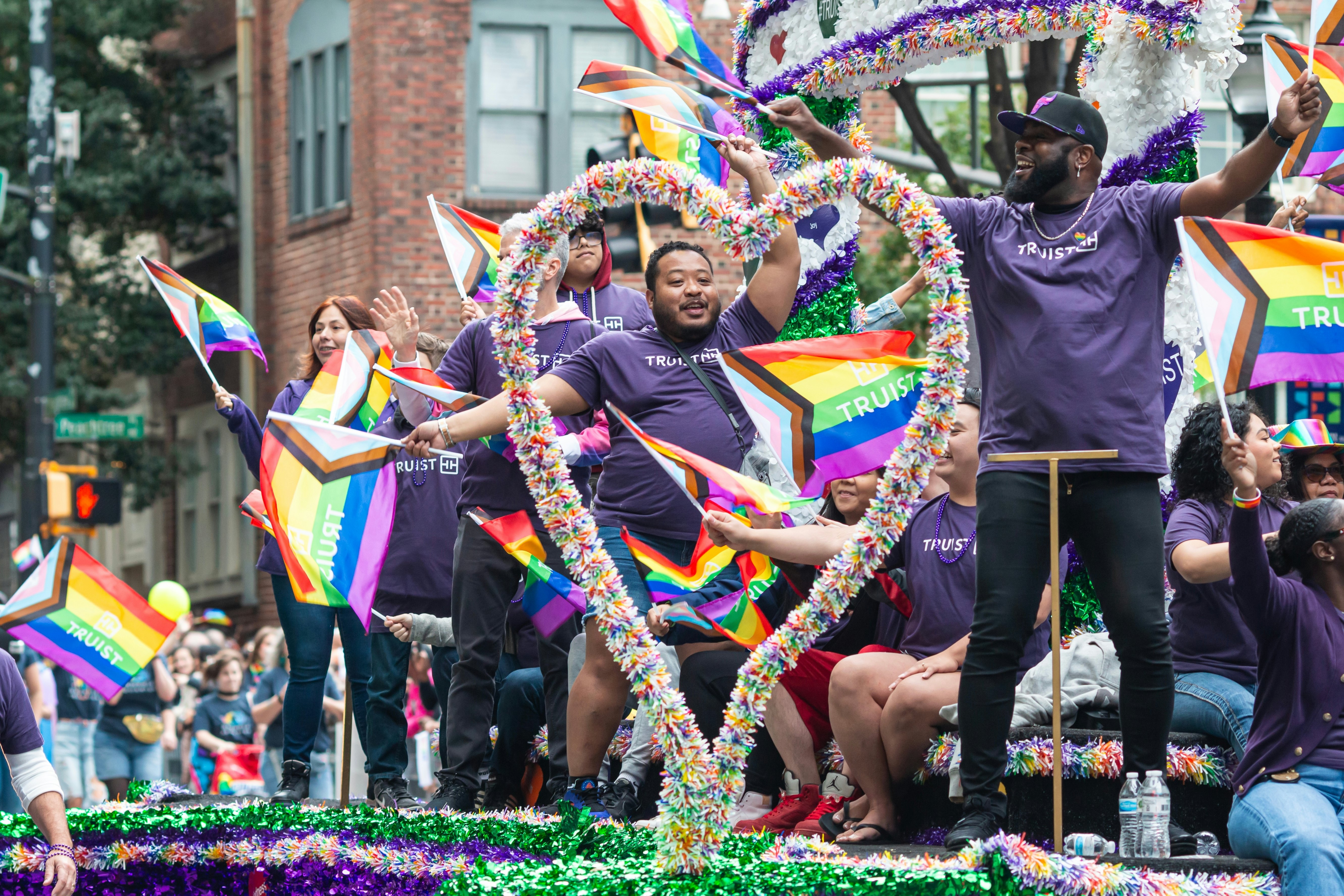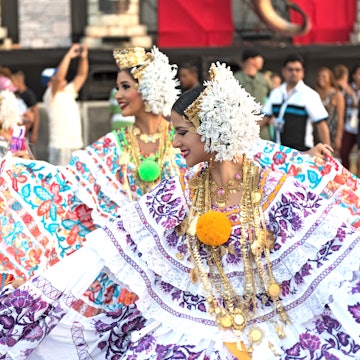

Peachtree Park in Atlanta. Spring brings high pollen counts in the city. A_McIntyre/Shutterstock
My Atlanta story began in 1990, when my parents moved their young family to the metro area so they could pursue new job opportunities.
It was an exciting time to grow up in the unofficial capital of the South.
Atlanta’s first Black mayor, Maynard Jackson, was in his third and final term. Local leaders were working on their successful bid to host the 1996 Summer Olympics. And Freaknik, the biggest college party for historically Black college and university (HBCU) students, had already gained a national reputation.
As an adult, I’ve lived a few other places – but my hometown always seems to draw me back in, and I find new ways to fall in love with Atlanta every time I return. If you’re planning a visit, here are a few insider tips to help you navigate our rules, culture and even the streets.
1. Plan to spend at least three days in “the A”
It will take any first-time visitor at least two days to see Atlanta’s most famous sites Start with Atlanta’s Downtown tourist district – home to the Georgia Aquarium, the World of Coca-Cola museum and the National Center for Civil and Human Rights, all within the same square. Centennial Olympic Park is a short walk away.
The King Historic District is about a five-minute drive from there – yet given the breadth of the legacies of Martin Luther King Jr. and Coretta Scott King, you’ll need to devote a good amount of time to absorb it all.
After that, visitors can choose their own adventure by exploring Atlanta's neighborhoods; strolling along the Beltline, a 22-mile multi-use trail; or getting a seat at one of Atlanta’s award-winning restaurants.

2. Black culture is core to Atlanta
Atlanta has the second largest population of Black Americans of any city in the US (behind only New York City). But that’s not the only reason why the Black community sees Atlanta as a central city for the culture. It’s also home to four HBCUs and to Tyler Perry Studios, and has deep roots in the civil rights movement of the 1950s and ’60s. Atlanta has remained a major hub for hip-hop, from early pioneers such as Frank Ski and Kilo Ali and legends like OutKast, Ludacris and T.I. to fresh talents including Two Chains, Gucci Mane, Future and 21 Savage. On your visit, you’re sure to feel both the history and energy of Atlanta’s Black community.
3. Saying “Hotlanta” will get you the side eye
Yes, we know Atlanta gets hot in the summertime. And yes, we also know our city is poppin’ with fun things to do all year long. But neither of those truths would ever, ever warrant someone calling the city Hotlanta. The nickname may have been acceptable when it was first coined in the 20th century. But today it will instantly label you as an outsider.
Casual nicknames locals prefer are “the A” and “the A-T-L.” If you’re looking for more highbrow nicknames, the Gate City and the City in a Forest also apply, but are not typically used in casual conversation.
4. Atlanta has all the Peachtree Streets
Whoever was in charge of naming streets in Atlanta seemed to run out of ideas. For instance, you’ll notice a lot of roads are named after peach trees. A lot of them. On one hand, the practice is kind of cute (Georgia is the Peach State, after all) – yet the charm tends to wear off once you realize 71 roads in Atlanta (at last count) have Peachtree in the name. It can get confusing quickly, so pay attention to the details to see if you’re looking for Peachtree St, Rd or Wy.

5. Know the pros and cons of each season
Summertime in Atlanta is filled with incredible festivals and outdoor celebrations – but you should brace yourself for 90°F (32°C) temperatures and sweltering humidity. Winters are mild, but there’s considerably less to do since Southerners don’t appreciate cold weather of any kind.
Spring and fall are magical times in the city – but check with your allergist before booking your trip. Thanks to our abundant tree cover, Atlanta gets blanketed in pollen, particularly in the spring. At least we can all admire the blooming dogwood trees while we sneeze.
6. Prepare to see and be seen in Atlanta
Atlanta doesn’t believe partying should be limited to the night. Day parties and restaurants with a lounge atmosphere – a term one website aptly called the “clubstaurant” – are plentiful. This style may be strange to some visitors; indeed, the popular TikTok food critic Keith Lee was shocked by the lack of hospitality at some of these businesses. But to enjoy them like a local, go for the vibes, not for traditional restaurant service.
7. Getting around without a car is challenging
MARTA is Atlanta’s public transportation system, and it’s generally reliable and safe. Many people use the train’s red and yellow lines to get to and from the airport, but unfortunately the train system isn’t robust enough to take locals or visitors to all of the area’s best offerings, which sprawl across a large metro area. Renting a car or using rideshare apps are your best options.
Local politicians haven’t managed to keep up with infrastructure to support the city’s rapidly growing population, so spontaneous traffic jams occur regularly. Make sure you plan ahead for any timed entries or events.

8. Fill your soul with local cuisine
You can’t come to the South without filling up on soul food; luckily, Atlanta has some iconic options. Look out for local favorites such as shrimp and grits, and fried green tomatoes with pimento cheese; then, try new classics like lemon pepper wings. For eclectic international offerings, try the food hall at Ponce City Market, or the Buford Hwy Farmers Market or East Atlanta Village Farmers Market.
While other states may disagree, here, we embrace the diner chain Waffle House. (It was founded in Avondale Estates, a suburb of Atlanta, after all.) Most people have their hash brown order memorized, whether it’s smothered (with sautéed onions), covered (in melted cheese), diced (with chopped tomatoes) or capped (with mushrooms).
9. Sunday booze sales can be confusing
Southern cities have a complicated relationship with alcohol sales on Sunday. Atlanta is no different, and it can be tough to keep track of the regulations, especially when ordinances change from county to county (greater Atlanta lies within several different Georgia counties). If you’re within the city limits of Atlanta, you can order a Sunday-morning mimosa or Bloody Mary at brunch beginning at 11am. If you’re outside of Atlanta or Fulton County, be aware that the local laws may be different.

10. Atlanta embraces our LGBTQ+ community
Atlanta is also a hub for the Black queer community, and has been for at least two decades. Every Labor Day weekend, the community comes together to celebrate Atlanta Black Pride. And there are opportunities to celebrate all year long, whether during Atlanta Pride in October, or at any of the city’s gay bars and clubs, including favorites Bulldogs and My Sister’s Room.















